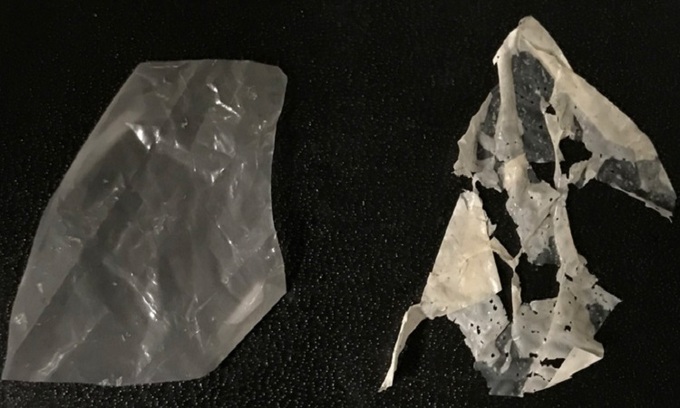Scientists at the University of California, Berkeley, have found a way to make biodegradable plastic dissipate more easily with just warm water.

The transformed resin (left) decomposes after 3 days (right).
In the study published in Nature, the scientists added a special molecule to a resin made of polylactic acid (PLA) and polycaprolactone (PCL). These compounds are commonly used in organic decomposition plastics. The particular molecule they use is an enzyme that breaks down the resin and converts it into lactic acid when the conditions are right.
Enzymes are encased in the polymer, then placed into the plastic fiber. They do not change the texture of the material, used as conventional polyester resin. Degradation occurs when the resin is exposed to water and high temperature.
Under conditions of industrial decomposition, PLA resins contain enzymes that disintegrate within 6 days at 50 degrees C. For PCL resins, exposure to a temperature of 40 degrees C for two days is sufficient for decomposition to take place. This method can biodegrade up to 98% of the plastic into small molecules and leaves no microplastics.
“People are now ready to switch from disposable plastic to biodegradable polymers, but that creates more problems than it offers value,” said professor Ting Xu, lead researcher. . “We are basically on the right track. We can solve the lingering problem of disposable plastic not being biodegradable.
The team also found that the modified polyester could not decompose at too low a temperature or a wet time was too short. That means a shirt made of this material will not be affected if washed in cold water or when wiped in sweat. The new plastic material can survive at room temperature for 3 months without decomposing. Warm water will promote a start.
Xu and partner are now exploring how to apply the method to other plastics as well as better control the degree of biodegradation so that the plastic partially breaks down and the remainder can be recycled into new plastic.
Source: Plastic World
